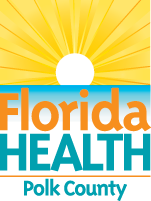It's a New Day in Public Health.
The Florida Department of Health works to protect, promote, and improve the health of all people in Florida through integrated state, county, and community efforts.
September is National Preparedness Month
September 01, 2015
September is National Preparedness Month and the Florida Department of Health is encouraging your family to be ready for any emergency that may come our way. Each week this month there is a preparedness topic designed to help residents think through various aspects of emergency safety and education. See below for more information.
WEEK 1: Personal Preparedness and Flooding
Planning what to do before a disaster strikes provides
the best protection for you and your family.
Knowing what your risks may be, and what the
disaster plans are for your workplace, your
children’s school or day care provides the steps
to take to prevent or avoid disasters.
WEEK 2: Education and Training
The Department is providing education and training in
emergency preparedness response in the workplace
and sharing opportunities for the public to become
involved. Take action and know what to do when in an
emergency situation (Active Bystander Training).
Medical Reserve Corps representatives will be present
at Local Health Offices statewide highlighting their
work.
WEEK 3: Emergency Preparedness Kits and Hurricanes
Are you prepared for a hurricane or storm? Start by
making a list of healthy foods that can be stored
without refrigeration and that require no electricity
to prepare. Don’t wait until the last minute to build
your kit, learn what items you will need for each
person involved in the plan, including pets!
WEEK 4: PrepareAthon and Power Outages
Get involved, find opportunities to support your community’s
preparedness activities! Be prepared for power outages, don’t
scramble for flashlights at the last minute, plan ahead and
practice food safety. Know when it’s safe to eat and when it’s
time to toss it out! When the power is out, refrigerators will
keep foods cool for approximately 4 hours. Thawed and
refrigerated foods should be thrown out after 4 hours.
WEEK 5: Top 10 Tips to Help You Prepare
The following tips are the top 10 ways to help you make
your preparedness plan complete.
1. Make an emergency plan for you and your family.
2. Put together an emergency supply kit, including healthy emergency foods.
3. List each person involved in the plan, contact information and label necessary supplies.
4. Have enough healthy food and water for at least 72 hours (1 gallon of water per person per day).
5. If evacuating, have a place to go, call ahead and plan your route.
6. Designate a point of contact and consider how you will let others know you are ok.
7. Carry sufficient medications and first aid kit with you.
8. Make sure the emergency plan includes your pets.
9. Maintain good physical and mental health.
10. Help children cope with disasters and make sure they understand your emergency plan.





Connect with DOH